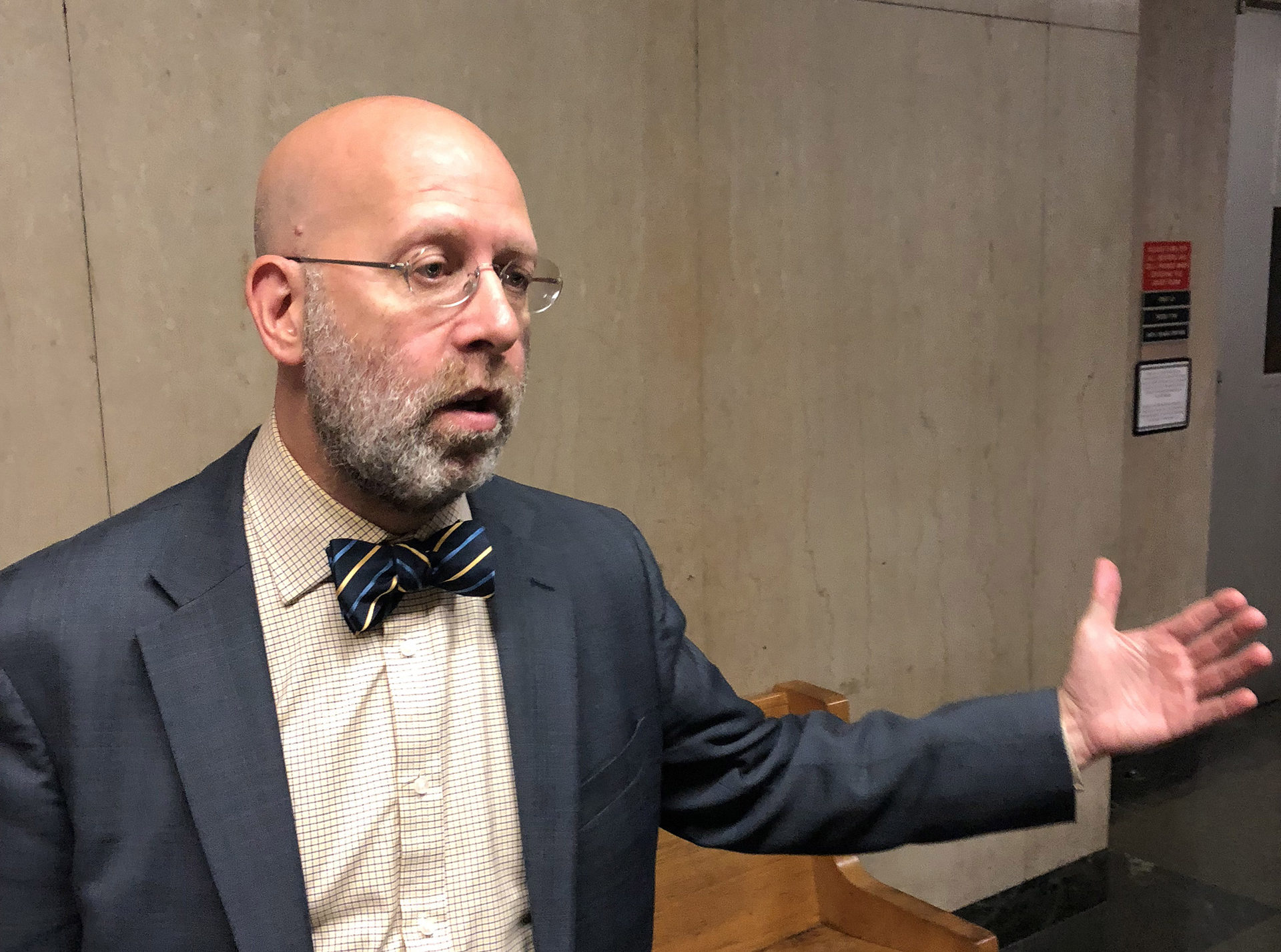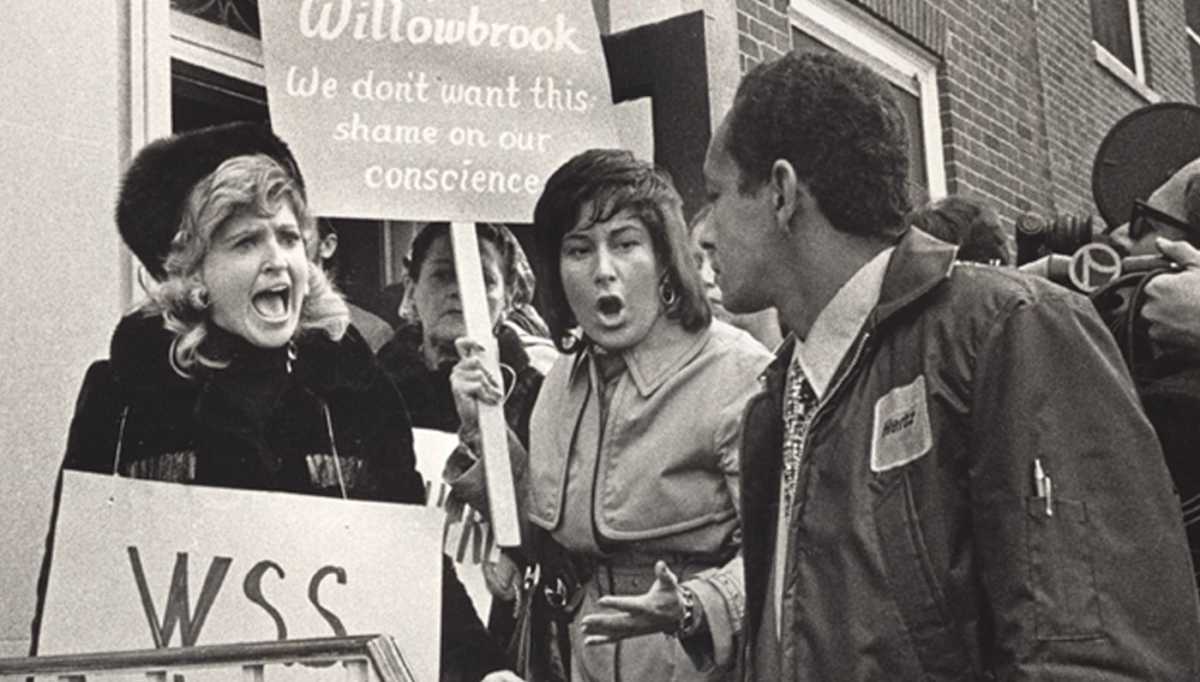Thomas Gilbert Jr. Trial To Begin March 4

Jury selection for the trial of Thomas Gilbert Jr., 34, the one-time Georgica Association resident accused of murdering his father almost four years ago, is tentatively scheduled to begin March 4 in the criminal courts building in Manhattan. The trial, before Judge Melissa Jackson, is expected to last about six weeks.
Gilbert addressed the court at length on December 11. He had written a six-page letter to the former chief judge of the New York State Court of Appeals, which was passed on to Jackson.
Gilbert has been a mostly silent presence in the court during his dozens of courtroom appearances following his arrest on January 5, 2015. He has been held without bail since then on Rikers Island. The New York Police Department says that Gilbert sent his mother out on an errand while he was visiting his parents at their Beekman Place apartment, shot his father with a .40 caliber Glock handgun, and then staged the scene to look like a suicide. The NYPD said the son, who maintained an apartment in Chelsea, murdered the father after learning that his allowance would be cut.
Up until now, Gilbert has refused to speak to his attorney, Arnold Levine, who took over the case from Alex Spiro in the fall of last year, except briefly on one or two occasions. On December 11, Gilbert was brought from Rikers Island and placed in a holding cell accessed through a door in the courtroom. This time, however, Gilbert spoke with Levine in private for about six minutes.
Gilbert, a Princeton grad like his father, was brought out wearing orange prison garb and handcuffed, under the guard of court officers, his hair down to his shoulders. Justice Jackson said she received an inconclusive report from psychiatrists on whether Gilbert was mentally competent to stand trial because Gilbert had refused to speak to them. “The court can and should render a decision as to whether to proceed with this case,” Justice Jackson said. She said that in the letter he had sent to Justice Jonathan Lippman, “Mr. Gilbert displays an understanding of the legal process,” which would make him competent.
Levine said Gilbert wanted to talk directly to the court, and asked if his handcuffs could be removed, to allow him to turn the pages of the document he was about to read from.
Seated, Gilbert began to read. “Thank you, your honor, for allowing me to exercise my personal right to freedom of speech,” he began. He said that his rights to “due process has been violated under the Fifth and 13th Amendments” as well as the “Secrecy Act of 1789” against illegal search and seizure. He spoke for almost 10 minutes in a calm voice. Of his arrest and the search of his 18th Street apartment in Chelsea, Gilbert said, “The arrest and search warrants were not issued until the following day,” adding that “the illegal seizures started at the time of the knock.”
Gilbert said his right to a speedy trial was being violated, and asked the court for a change of venue, saying the trial should start in 14 days. He then asked to be released. “Bail in the appropriate amount should not be denied,” he said.
Justice Jackson said that Gilbert had obviously been spending a lot of time in the Rikers Island legal library. “Very well argued,” Justice Jackson said. “You have the potential to be a good lawyer down the road,” she said. “Thank you,” Gilbert replied.
She then addressed several of his points. Justice Jackson said that, as to Gilbert’s request for a suppression hearing concerning evidence, “I do note that you have already had a suppression hearing.” She continued, “After hearing all the evidence in the case presented by the people, the court concluded that there were no Fourth Amendment violations in the matter, and denied suppression. So, I have already entertained and decided based on the evidence.”
“If there is an appeal on this case, you have made your record, and I have made mine, too,” she added.
Levine then spoke. “With all due respect, your honor, I think that you are confusing articulateness, intelligence, and the ability to read and write copy with fitness for trial. Those things are not the same.” He called Gilbert’s presentation a “mish-mash of legal mumbo jumbo, most of which doesn’t even apply here.”
Craig Ortner, the lead prosecutor on the case, told the court that the four-year delay was due almost entirely to the defense team.
Gilbert asked the court if he could change attorneys. Jackson told Gilbert, “You have an excellent attorney who has appeared in this courtroom,” and come away with not guilty verdicts. Levine, who has been retained by Gilbert’s family, asked for time over the next couple of days, to sit alone with his client, away from Rikers Island. Justice Jackson granted his request, and Gilbert was brought back to court on December 14. After a brief meeting with Levine, Gilbert again asked for a change of attorney, which Justice Jackson again denied.
t.e@indyeastend.com



